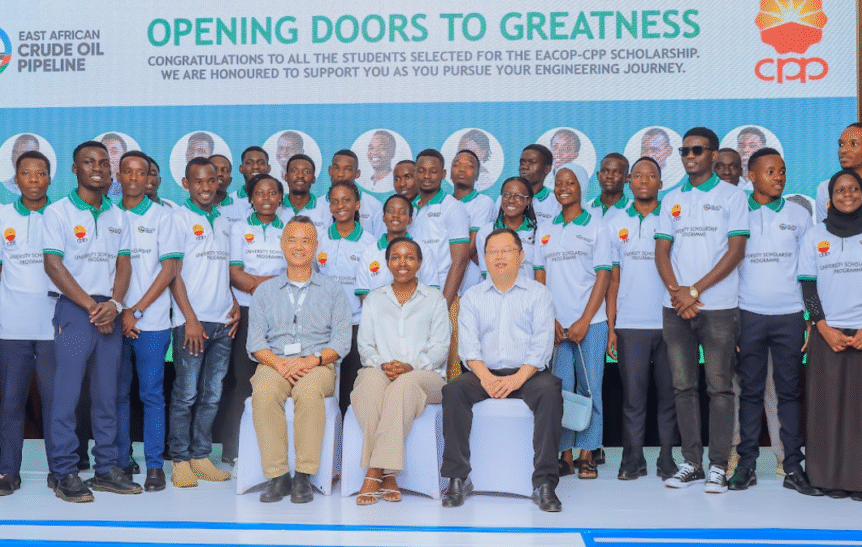Kampala, Uganda | The East African Crude Oil Pipeline (EACOP) Ltd., in partnership with China Petroleum Pipeline Ltd. (CPP), has launched a university scholarship program aimed at supporting underprivileged yet talented engineering students in Uganda. The initiative, which will benefit 28 students from Kyambogo and Makerere Universities, seeks to empower the next generation of engineers by providing financial assistance to complete their studies.
The scholarship program is part of EACOP and CPP’s broader commitment to strengthening national content development, a commitment that goes beyond their Memorandums of Understanding (MOUs) with academic institutions. The recipients were selected through a competitive and transparent process, considering academic excellence, financial need, passion for engineering, and dedication to making a positive community impact. Special consideration was given to applicants from the 10 pipeline districts, with seven students selected from these regions.
Eileen Baguma, HR & Corporate Affairs Director at EACOP, expressed the company's ongoing investment in Uganda’s future engineering talent: "We are not only building infrastructure but also creating opportunities for young Ugandans to thrive in the oil and gas sector." She emphasized that the program is part of EACOP's broader strategy to support national content development, benefiting both the local workforce and the broader economy.
This scholarship program is a continuation of EACOP’s wider national content strategy, which includes partnerships with key institutions like the Uganda Petroleum Institute Kigumba (UPIK), Makerere University, Kyambogo University, and the Institute of Surveyors of Uganda. The company has also welcomed 82 graduate trainees, enriched national curriculums through 532 hours of training for lecturers, and worked closely with institutions to ensure that Uganda’s engineering workforce is prepared for the future.
Through these efforts, EACOP and its contractors are not only driving infrastructure development but also fostering sustainable capacity building and knowledge transfer in Uganda and Tanzania, ensuring long-term growth for both countries.
